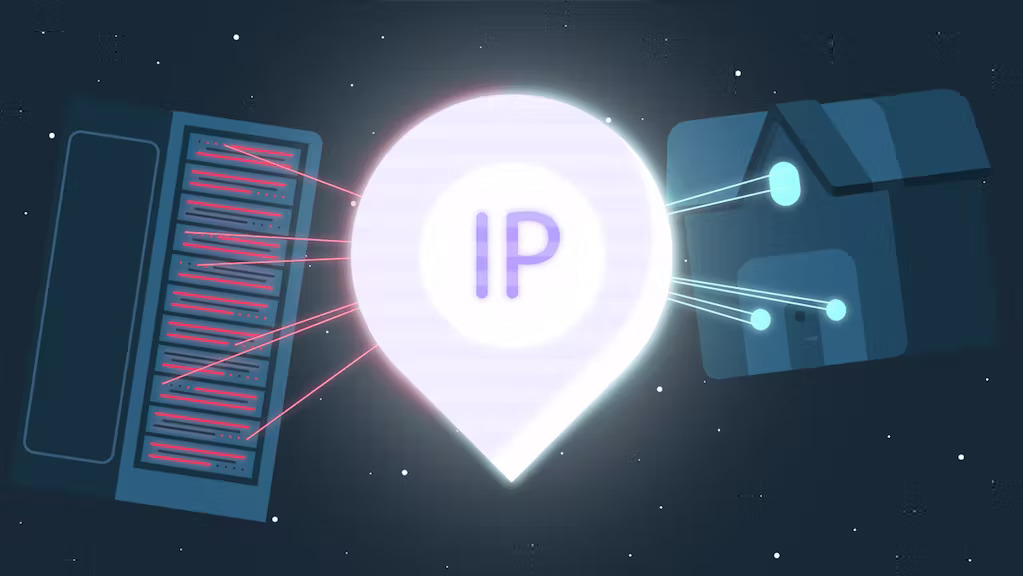What are ISP proxies?
Proxies, intermediary servers that route your internet traffic, usually fall into three categories: datacenter, residential, and ISP. By definition, ISP proxies are affiliated with an internet service provider, but in fact, it’s easier to see them as a combination of datacenter and residential proxies. Let’s take a closer look at ISP proxies and see how they’re particularly useful for web scraping.
What are ISP proxies?
ISP proxies are intermediary IP addresses hosted in data center servers. However, ISP IP addresses do not belong to data centers. They use IP addresses associated with an internet service provider (ISP). In a nutshell, they combine the functionality of both datacenter proxies and residential proxies. Unlike datacenter proxies, residential proxies guarantee web scraping security.
If speed is critical for your tasks, data center proxies are the ideal solution because they are incredibly fast when compared to other proxies. ISP proxies combine the speed of data center proxies and the high anonymity of residential proxies. However, they can be a bit more expensive than a data center and a residential proxy.
Static Residential and ISP Proxies – Why the Two Names?
ISP proxies and static residential proxies refer to the same thing. Why have two terms, then? Static residential proxies are the older name, which was first used by the few providers that sold them. However, at some point, these IPs were discovered by the sneakerhead community, and they renamed them. Nowadays, ISP proxies are the more popular name, but they’re still used side by side.

How these proxies work
ISP proxies work just like any proxy server. They assign a new IP address for every online request and secure your connection by hiding your location and IP address. A new IP address allows you to visit multiple websites without seeming suspicious.
While datacenter IPs are fast and cheap, they are easily detected and blocked by target websites. Although you can conquer this challenge with virtually undetectable residential IPs, they’re expensive since they come from real devices.
ISP proxy services combine the benefits of residential and datacenter proxy by providing a secure and fast pool of residential IPs hosted on a datacenter server. Users receive access to safe and anonymous IPs that they can use for residential and commercial purposes.
Use Cases for ISP Proxies
Being highly anonymous and predictable, residential static IP addresses excel against protected targets, when there’s a need for consistent identity. One use case that instantly comes to mind is managing multiple social media or e-commerce accounts. While these platforms often rely on browser fingerprinting, having a good IP reputation helps in keeping the accounts safe.
Another, increasingly popular use case is sneaker copping. For one, shoe retailers suffer from bots, so they have erected advanced protection mechanisms. What’s more, static residential have a fast connection speed (still relevant in this niche) and IP-based pricing. Stores like Footlocker played around with heavy loading .gifs that would quickly expand the traffic allowance of residential plans.
Social media management and sneaker scalping aren’t the only use cases. Static residential proxies work just as well for web scraping. In this case, the main consideration is whether it makes financial sense to use them.
What are the advantages?
ISP proxies are great when you are searching for a reliable connection to the internet. However, you should know a few other advantages that make ISPs a perfect choice for almost all online tasks.
- Bandwidth. ISP proxies providers offer almost unlimited bandwidth. However, bandwidth highly depends on the pricing model the user chooses. Most providers don’t charge for the consumed traffic as the static residential proxies are often used for traffic-intensive tasks, and the pay-per-traffic pricing model would not be suitable for most use cases. Users receive purchase individual IP addresses and can use them for various tasks like web scraping or market research.
- Anonymity is another valuable ISP proxy advantage as they are considered more legitimate than other proxy types. The purchased ISP proxies allow users to bypass various restrictions and anti-scraping security measures the websites can employ. As static residential proxies have real device IPs, most websites treat the ISP’s users as new visitors.
- Top-notch uptime. ISP proxies guarantee 99.99% uptime, meaning users won’t experience any stability issues.
- Speed. They provide a vast IP pool while combining the speed of data center IPs and the legitimacy of residential proxy servers. Static residential IPs can help users complete various tasks quickly yet with the highest possible success rate.

Potential challenges
No matter how beneficial ISP proxies may seem, they’re not without a few challenges. Here are some things to keep in mind.
- Cost-efficiency: ISP proxies may be pricier than residential or datacenter proxy services due to their sourcing. You have two options for purchasing ISP proxies:
+ Per IP address – private or residential proxies could be more affordable; or
+ Per traffic – residential proxies are cheaper per gigabyte.
- Limited locations: Even though ISP proxy providers have servers worldwide, renting multiple servers could be pricier than using solutions such as peer-to-peer residential networks.
Compared to P2P networks, ISP proxies offer fewer server locations. In addition, you should add charges for maintaining multiple servers to the high price of ISP proxies.
- Fewer subnets: Despite having an impressive variety of subnets, ISP proxies can’t come close to P2P residential proxies.
Conclusion
ISP proxies offer a powerful combination of datacenter and residential IPs. While not without flaws, they are quickly gaining ground in certain niches. Considering their success, we can only expect static residential IP addresses to become more widespread – hopefully, driving down the price.